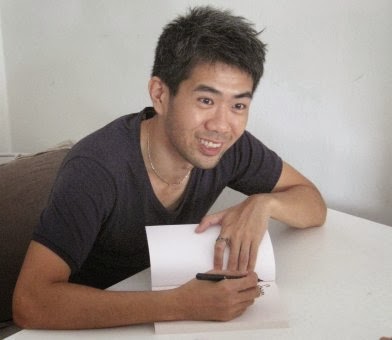
A big Mughal(-ish) garden, designed by British architect
Edwin Lutyens. Photo from here.
Edwin Lutyens. Photo from here.
Babur, the first Mughal ruler, was said to have favoured the chahar bagh, a garden of Persian design with a squarish layout. Features included trees, especially those that bear fruit; flowering plants and shrubs; birds and insects; and big water features such as pools, canals and fountains, and even tiered cascades.
Later Mughal gardens incorporated religious elements and symbols, creating a slice of Paradise on Earth. Surrounded by the fragrances and hues of flowers and fruits and lush greenery; the sound of birds, rustling foilage, and burbling of running water; and the cool breezes, it's hard not to feel otherwise. Definitely a far cry from the harsher aspects of the Mughal rulers' lives.
While the Mughal gardens were also a display of man's power to tame and alter the landscape, Desmond Ho's designs work with it and are arguably more natural-looking. Though some of the designs are relatively modest in scale, his gardens can have the same soothing effects.


Desmond Ho's Guide to Beautiful (Non-Palatial) Home Gardens will help you
dream up something more modest but doable - and just as lovely
dream up something more modest but doable - and just as lovely
Ho has come a long way since he decided to make a living by bringing people closer to nature. Picking things up on his own in the pre-Internet days, he started out by selling glass-enclosed greenery in terrariums and ended up founding Terra Garden, a garden design company that pioneers a Malaysian concept of outdoor living called Neo Nusantara.
After introducing this garden concept to a number of homes and public spaces, Ho aims to bring it to a wider audience. Desmond Ho's Guide to Beautiful Home Gardens, his attempt to do just that, is more of a concept guide, kind of like those lovely home garden and interior décor magazines.
The designs showcased in the company's web site are eye-catching and feels natural. But the immediate effect of this book on me was to instil the urge to buy a house. With a water feature. Maybe with a few plants around it. And a chaise longue. And...
...right, well, the latest volume in the MPH Masterclass Series is a bit different than the others. For one, it's no step-by-step handbook on DIY home-garden assembly.
Very few homeowners will do the actual work of installing lights, mixing concrete, digging ponds and so on. You'd almost want to pick up the phone and call a landscaper, which is what he recommends that you do.
But unlike the magazines, Ho provides more tips and advice on putting together the wish list for your dream garden. From lights, plants, water features and types of furniture to suggested garden layouts for a bungalow, semi-detached or terrace house, or even an apartment, you'll believe it's possible to own a slice of Paradise - even a tiny one - in your home.
Desmond Ho's Guide to Beautiful Home Gardens
Desmond HoMPH Group Publishing
160 pages
Non-fiction
ISBN: 978-967-415-164-5
Buy from MPHOnline.com
Categories:
New Publications

















